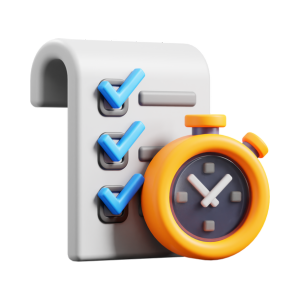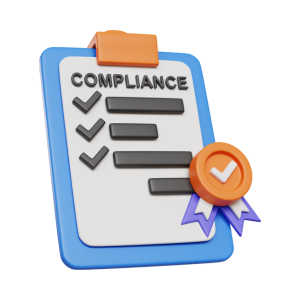Digital Signature Certificate
A Digital Signature Certificate (DSC) is an electronic form of a signature used to authenticate digital documents and transactions. It ensures the integrity, authenticity, and non-repudiation of digital communications by providing a secure and legally recognized way to sign electronic documents.
- Enhanced Security
- Legal Validity
- Efficient Transactions
- Compliance

Overview of Digital Signature Certificate (DSC)
A Digital Signature Certificate (DSC) is a secure digital key used to authenticate the identity of an individual or organization in electronic transactions. It provides a safe method to sign digital documents, ensuring that they are tamper-proof and legally valid. DSCs are issued by Certifying Authorities and utilize public key encryption to protect documents, proving their authenticity. DSCs are widely required for activities such as online filings (e.g., income tax, GST), signing contracts, and secure online transactions.
Benefits of Digital Signature Certificate
- Secure Online Transactions: DSCs ensure that your digital transactions are safe and protected, reducing the risk of fraud and unauthorized access. They use encryption to secure documents and verify the integrity of data.
- Legally Recognized: Digital signatures are legally binding and recognized under the Information Technology Act, 2000. This makes DSC essential for signing contracts, filing tax returns, and complying with regulatory requirements.
- Time-saving & Convenient: DSCs eliminate the need for paper-based processes, offering a faster, more efficient way to handle business transactions and filings. This promotes a paperless environment, saving time and contributing to sustainability.
- Ensures Compliance: DSCs help businesses and individuals stay compliant with mandatory e-filing requirements for tax returns, GST filings, and other legal documents, ensuring you meet deadlines and avoid penalties.
Use of DSCs
DSCs are used in various sectors and filing processes to ensure the authenticity and security of electronic transactions.
- Income Tax Filing
- Annual Returns, Board Resolutions, and other corporate documents that have to be submitted to RoC
- Goods and Service Tax (GST)
- Company Incorporation
- MCA filings like annual returns, financial statements, and other company-related documents
- E-Government Services like e-tenders, e-auctions, and public procurements
- Banking & Financial transactions like online banking, digital contracts, e-tenders, e-auctions, and public procurements
- Intellectual Property Filing like filing patents, trademarks, and copyrights with the Indian Patent Office etc.
- Digital Contracts and Agreements like business agreements, NDAs, etc.
- Custom & Import-Export
- E-Voting for shareholders in the Annual General Meetings (AGMs)
- Right to Information Applications
Required Documents for DSC Registration
To apply for a Digital Signature Certificate (DSC) in India, you will need to provide the following:
Identity Proof:
A valid government-issued ID like Aadhaar card, PAN card, passport, or driver's license.
Proof of Address:
Documents such as an Aadhaar card, utility bills (electricity, water), or bank statements.
Passport-sized Photograph:
A recent, clear passport-sized photo.
Organizational Documents (for Business DSC):
For corporate DSC, you must provide proof of business registration (e.g., GST certificate, business registration certificate), and the application should be made by an authorized member of the organization.
Permission Letter (for Organizational DSC):
An authorization letter from the organization, signed and stamped, permitting the applicant to request the DSC on its behalf.
Procedure for DSC Registration
The Digital Signature Certificate (DSC) registration process includes the following key steps:
- Choose the DSC Type
The foremost step in applying for Digital Signature in India is to choose the DSC type. There are five (5) types of Digital Signatures:
DSC Type | Uses |
Class 1 DSC | It is used for personal email verification, online banking, and individual transactions and filings. |
Class 2 DSC | It is used in income tax e-filing, GST returns, filings with ROC, and e-filing documents with government agencies. |
Class 3 DSC | It is used in e-tendering, e-auctions, business agreements, and government and private-sector procurement. |
DGFT DSC | It is used in export-import documentation, custom declarations, DGFT applications, and filings. |
Organization DSC | Business registration, signing corporate documents, and online filings for the businesses. |
- Complete the Online Application
Fill out the online application form given by the Certifying Authority (CA) with the necessary personal or group details, such as name, contact information, and business registration details (if relevant).
- Submit the Documents
Upload or submit the appropriate supporting documents, which usually include proof of identity (e.g., Aadhaar card, PAN card, passport), proof of address (e.g., gas bill, bank statement), and a recent passport-sized picture.
- Make the Payment
Pay the appropriate fees for the DSC register through the CA’s safe payment route. The fees may vary based on the type of DSC and the validity term.
- Verification and Approval
The CA will study your application and supporting papers. Upon successful proof, your DSC will be accepted and given.
- Receive the DSC
The accepted DSC will be given to you, either in the form of a smart card or a soft code, which can be placed on your computer or device for use in digital sales and document signing.
DSC Compliance & Renewal
Compliance: DSCs are essential for various regulatory filings, including income tax returns, GST filings, and business registration. Without a valid DSC, businesses and individuals may face penalties or delays in the submission of important documents.
Renewal: Digital Signature Certificates are valid for a specific period (usually 1-2 years). After this period, they must be renewed to maintain their legal validity. The renewal process is simple and involves verifying the certificate holder’s identity and submitting necessary documents. Failing to renew your DSC on time may disrupt digital processes and compliance with legal requirements.
Get A Free Consultation
FAQ'S
A Digital Signature Certificate (DSC) is an electronic document used to verify the identity of the sender of a digital message or document. It ensures that the information is authentic and has not been tampered with during transmission. DSCs use encryption techniques to secure digital communication and transactions.
You need a DSC for secure and legally binding electronic transactions. It is commonly used for filing tax returns, signing contracts, and participating in e-tendering processes. DSCs provide authentication, integrity, and non-repudiation, making digital communications secure and legally valid.
There are three main types of DSCs:
- Class 1: Used for personal emails and basic authentication.
- Class 2: Used for filing tax returns and other official documents. Verifies the identity of the individual or organization.
- Class 3: Used for high-security transactions like e-tendering and online bidding. Provides the highest level of security and assurance.
To apply for a DSC, you need to:
- Choose a Certifying Authority (CA): Select an authorized CA that issues DSCs.
- Submit Application: Complete the application form, which can usually be done online.
- Provide Documents: Submit required documents such as identification proof and address proof.
- Verification: The CA will verify your documents and identity.
- Receive DSC: Once approved, you’ll receive your DSC, typically in the form of a USB token or a soft certificate.
Commonly required documents include:
- Proof of Identity: Passport, Aadhar card, or driver’s license.
- Proof of Address: Utility bill, bank statement, or lease agreement.
Photographs: Recent passport-sized photos (depending on the CA’s requirements).
A DSC is generally valid for 1 to 3 years, depending on the certificate type and the issuing Certifying Authority (CA). You will need to renew your DSC before it expires to continue using it for secure transactions.
To renew your DSC:
- Contact your Certifying Authority (CA): Reach out to the CA that issued your DSC.
- Submit Renewal Application: Complete the renewal form, which may be available online.
- Provide Updated Documents: Submit any updated identification or address proofs if required.
- Verification: The CA will verify your renewal application.
- Receive Renewed DSC: After approval, your renewed DSC will be issued.
If you lose your DSC or if it is stolen:
- Contact the Certifying Authority (CA): Inform them immediately.
- Request Revocation: Ask the CA to revoke the lost or stolen DSC to prevent unauthorized use.
- Apply for a New DSC: Follow the procedure to apply for a new DSC, which may involve re-verification of your identity.
Typically, a DSC is issued for use on a specific device, such as a USB token. If you need to use it on multiple devices, you may need to obtain additional DSCs or install the DSC on each device, as per the CA’s guidelines.
Yes, a DSC is legally binding and recognized under various laws, including the Information Technology Act, 2000 in many countries. It provides the same legal standing as a handwritten signature for electronic documents and transactions.








